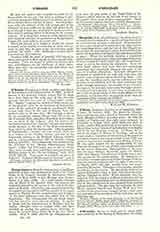

Obreption (Lat. ob and repere, “to creep over”), a canonical term applied to a species of fraud by which an ecclesiastical rescript is obtained. Dispensations or graces are not granted unless there be some motive for requesting them, and the law of the Church requires that the true and just causes that lie behind the motive be stated in every prayer for such dispensation or grace. When the petition contains a statement about facts or circumstances that are supposititious or, at least, modified if they really exist, the resulting rescript is said to be vitiated by obreption. If, on the other hand, silence had been observed concerning something that essentially changed the state of the case, it is called subreption. Rescripts obtained by obreption or subreption are null and void when the motive cause of the rescript is affected by them. If it is only the impelling cause, and the substance of the petition is not affected, or if the false statement was made through ignorance, the rescript is not vitiated. As requests for rescripts must come through a person in ecclesiastical authority, it is his duty to inform himself of the truth or falsity of the causes alleged in the petitions, and in case they are granted, to see that the conditions of the rescript are fulfilled.
WILLIAM H. FANNING

